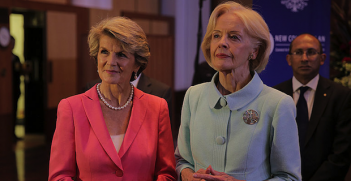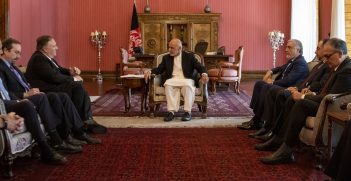History Repeating Itself: Jacob Zuma Faces Prison Once Again

Jacob Gedleyihlekisa Zuma served as the fourth democratically elected president of South Africa. He is now playing a cat-and-mouse game with his former fellow revolutionaries to avoid being locked up again.
Zuma, now aged 79, knows all about life in prison. He spent ten years on notorious Robben Island near Cape Town with fellow African National Congress (ANC) member fighters like Nelson Mandela. All had been shipped to the remote island for their attempts to overthrow the apartheid regime of Hendrik Verwoerd. Six decades later, this game of cat-and-mouse has commenced due to his refusal to appear before an official enquiry, the Commission of Inquiry into Allegations of State Capture, which is investigating a series of corruption scandals that took place during his tenure as president.
The commission’s chair, Deputy Chief Justice Raymond Zondo, says he is now seeking an order from the Constitutional Court, the country’s highest court, that would “impose a term of imprisonment on Mr. Zuma.” In its Heads of Argument to the Constitutional Court, the commission said that the former president’s “public defiance” amounted to contempt of court, saying it “appears calculated to undermine public trust in the judiciary and the administration of justice as a whole.” Justice Zondo explained that his action in imprisoning Zuma was necessary, quoting the seriousness of Zuma’s conduct and the need to ensure that all are equal before the law.
The allegations of Zuma’s involvement in major corruption are detailed, extensive, and serious. He denies them but refuses to appear before the commission to discuss them. Instead, he has accused the judge of a personal vendetta against him. Ironically, it was Zuma, when president, who set up a commission to investigate corruption in state-owned enterprises and government departments.
The state capture commission has a wide brief and, not surprisingly, it has split the ruling ANC party wide open, miring its leadership in a miasma of division and conflict. The turmoil has impacted the whole country, which is already struggling with management of the COVID-19 pandemic, violence and social issues, and concerns over its perceived role as the African continent’s most important economic powerhouse.
Jacob Zuma’s day of reckoning has been a long time coming. His problems can be traced back to the early days of South Africa’s democracy. A Zulu by tribal origin, with no formal education, he spent his early years in KwaZulu-Natal, mostly in townships around the eastern city of Durban. When released from Robben Island, he was active as an ANC intelligence operative and member of the South African Communist Party. He then joined other anti-apartheid activists in exile in Mozambique and, later, at ANC headquarters in Lusaka, Zambia.
After the creation of the new South Africa following the country’s first free elections, Zuma occupied various roles. He initially held influence solely in his home state, but later rose to be elected as deputy president of the ANC and then as executive deputy president of South Africa in 1999.
By the time he became president, formal charges of corruption were piling up. They threatened not only to destroy Zuma’s career but the new South Africa itself. It was at this point that officials began to refer to this brand of ultra-corruption as “state capture.” Zuma was linked to corruption so vast that it destroyed entire institutions, pried open state budgets, and severely damaged the criminal justice system. Three years ago, Zuma was pushed out of office.
Facing such charges, it might be expected that the former president would have entered a plea of “not guilty” and reserved his defence. Not so. Like the celebrity he undoubtedly is, he continues in an extraordinary act of defiance, spending most of his time at home in KwaZulu-Natal, in a grand residence overlooking the Indian Ocean, supported by friends, followers, and a battalion of lawyers.
This, of course, is a familiar story. There are some similarities between two big bruisers who became presidents: the former reality TV host Donald Trump, serial tweeter of falsehoods, who now skulks in Mar-a-Lago perpetuating the lie that last November’s election was stolen, and Zuma, the former freedom fighter, who rails against what he claims is a vast shifting conspiracy against him. He blames spies, judges, Western imperialists, white people, black people, constitutionalists, corporations, and more.
His obstinacy would be laughable but for one very important reason. The idea that the new South African government should wield the power of the state to imprison one of the most renowned freedom fighters is anathema to many voters in a post-apartheid era. Some fear that action against Zuma could lead to civil unrest and violence.
The ANC leadership seems divided on the matter. When it was first mooted that Zuma should be charged for contempt after he refused to appear before the commission, a decision was deferred to enable members of the ANC executive to meet with him. However, the meeting failed to resolve the matter.
Zuma’s successor, former deputy Cyril Ramaphosa, has promised to purge the governing ANC of the endemic bribery that has severely damaged its credibility in South Africa. Ramaphosa has estimates that at least R500 billion (A$60 billion) has been lost to South Africa after looting by Zuma, his cronies, and other officials.
The problem for the South African president is the splits within the ANC over how to handle the corruption issue. Ace Magashule, the ANC’s secretary-general and one of Zuma’s close allies, is already facing trial on corruption allegations and, along with others facing prosecution, has declined Ramaphosa’s request to stand down.
Ferial Haffajee, a South African journalist who has reported on the commission since 2018, says its relentless exposure of corruption makes it a success story. “I think the ANC are shattered, nervous, divided and will become more so as the Commission reaches its last mile,” he told the Financial Times.
The commission has been in near-daily session for three years as witness after witness has told tales of graft and gouging in government contract negotiations and appointments. Even if Zuma fails to appear, the final report will become a public document.
Zuma’s fate remains uncertain. Throughout his life, people have recalled that his middle name, Gedleyihlekisa, in Zulu translates to “one who smiles while causing you harm.” The question now is, can he avoid harm to self?
Colin Chapman is a writer, broadcaster, and public speaker, who specialises in geopolitics, international economics, and global media issues. He is a former president of AIIA NSW and was appointed a fellow of the AIIA in 2017.
This article is published under a Creative Commons Licence and may be republished with attribution.





